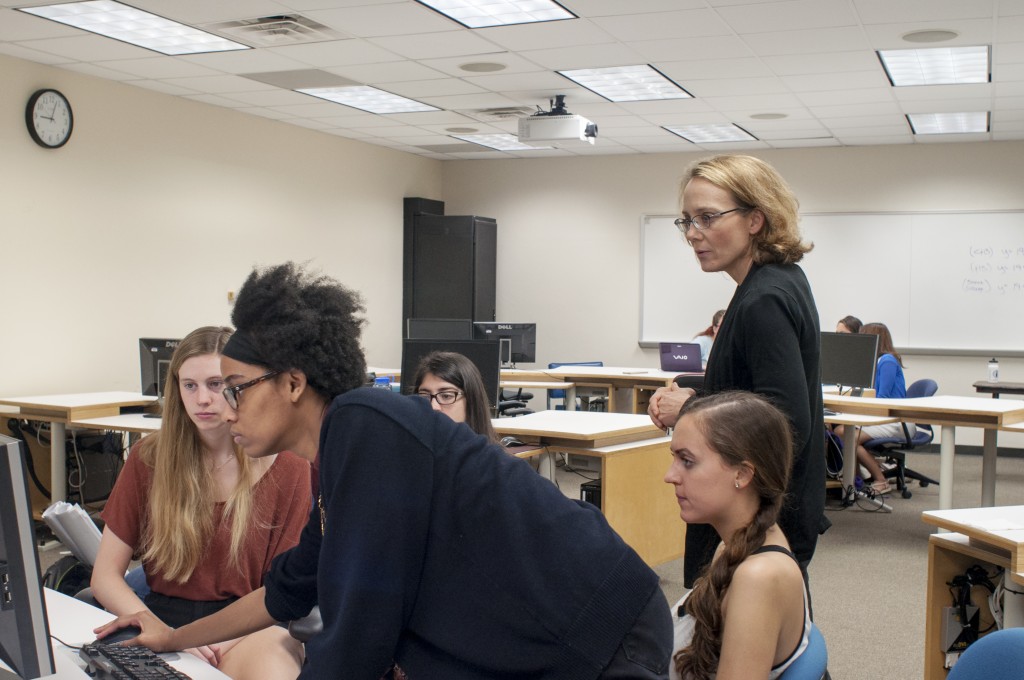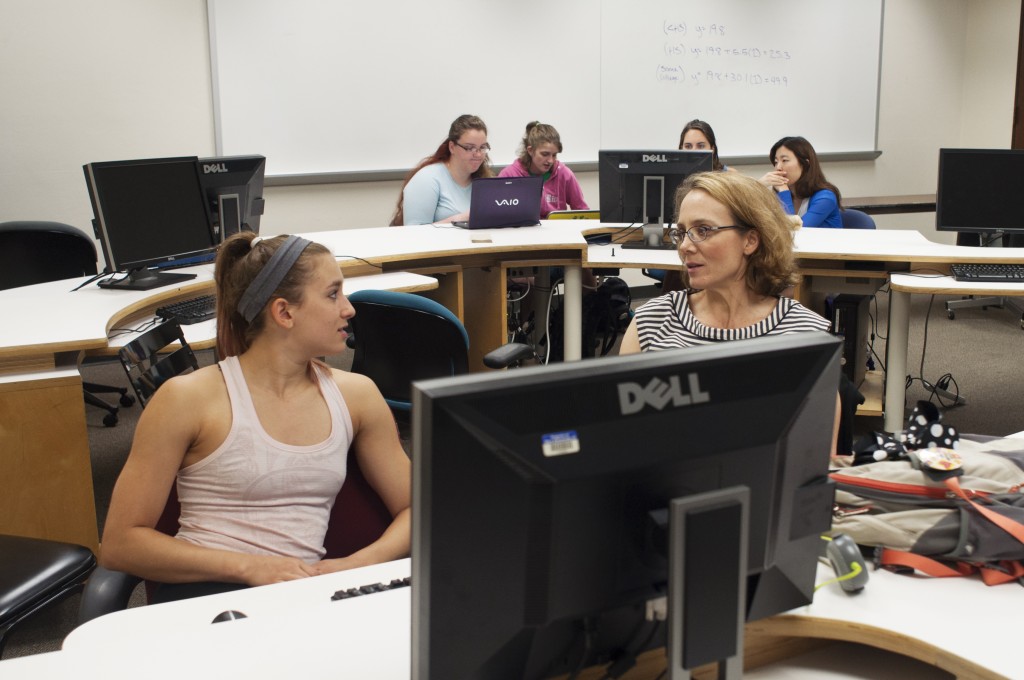When Dr. Margaret Beier, Associate Professor of Psychology, was an undergraduate student, most of her classes were taught lecture style. On her first day teaching at Rice University in 2004, Beier entered the classroom, walked to the podium, finished her lecture in thirty minutes, and dismissed her students twenty minutes before the class officially ended. As she progressed through the semester, Beier used OWL-space to garner student feedback, and she used the advice to modify her course to be more interactive. She realized the importance of more engaged projects in the classroom, and this has drastically altered her teaching style from that first day. Now, Beier says, “There is an expectation from students and faculty alike that the lecture-style classroom is not the best way to do things.” While Beier admits that she did have professors who lectured and were quite impactful, more interactive courses have proved to be more meaningful for her students – so Beier has made changes over the years to make her courses more interactive.
A recent example of Beier’s commitment to listening to student feedback is in her role of bringing back Psychological Testing (PSYC 329), a course that had once been offered at Rice but had not been offered in a long time. Beier explains, “I think it’s really important to engage students in class, the best thing you can have them do is what psychologists do: execute experiments and develop measures on a small scale that are similar to what psychologists use.” Following registration last fall, undergraduate students majoring in Psychology were saying that there were not enough Psychology electives offered for them, so, the Psychology department decided to add another course to offer a project-based class for students. Psychological Testing is a semester-long course with 15-20 students divided into 3-4 groups. Over the first half of the semester, students learn about psychometric reliability and the validity of testing. Later in the semester, students develop their own psychological tests and evaluate them through an empirical study they design.
While Beier only had two months to work on developing this course before the start of the semester, she utilized the time available to come up with a plan. In order to help steer students towards developing projects that are both feasible and original with the time and resources allotted, Beier prompts her students with a few articles in various areas such as cognitive psychology, social psychology, and personality psychology. To pique students’ interest in topics, Beier specifically selects introductory articles across those areas and asks students to use these ideas to develop their own measures. Although students always have innovative ideas, Beier says that topics involving food, medicine, and sleep deprivation are frequently some of the initial ideas students develop; topics that tend to be too difficult to investigate within one semester.
After students choose a topic and develop their tests, the groups evaluate each other’s tests and offer critiques. Most of the tests are conducted on Qualtrics and SPSS. Beier explains, “The students are not competitive when giving feedback but instead are so positive and constructive.” After this phase, the students submit their projects for IRB approval, conduct their tests via social media, analyze the data, write up a report, and present it. An example of a project from spring 2015 was a group who was studying human susceptibility to flow experiences, or the ability to lose oneself in work. In a flow state, people lose track of time because they are engaged in what they are doing. The students studied whether math problems on the SAT are related to flow.
Of course, Beier continues to assess her teaching style and improve the classroom for her students, but she also performs formal research on teaching and learning. She currently researches academic performance with Dr. Rebecca Richards-Kortum and Dr. Ann Saterbak, both bioengineering professors at Rice. They are studying the importance of active learning in STEM courses. One of their main questions is the extent to which participating in active learning classes increases student interest in pursuing STEM. While they are still collecting data for this project, Beier is interested in self-efficacy, which is a person’s belief that they can do a task. She investigates whether “students develop self-efficacy through mastery experiences in active learning courses that will propel them forward.” Beier believes so, which is the reason she has tried to show students what it means to be a psychologist through her Psychological Testing course.
In PSYC 329, students are forced to think about how tests are developed. Then, they must develop and implement a test on a topic of their choice. Beier believes that this course helps students develop critical thinking skills in Psychology, but she also finds it imperative that her students are exposed to the work done by psychologists. While lectures clearly can convey information, Beier has realized that a more active style of teaching may be more effective. For this reason, she is constantly innovating, implementing, testing, editing, and researching how to best teach her students.



